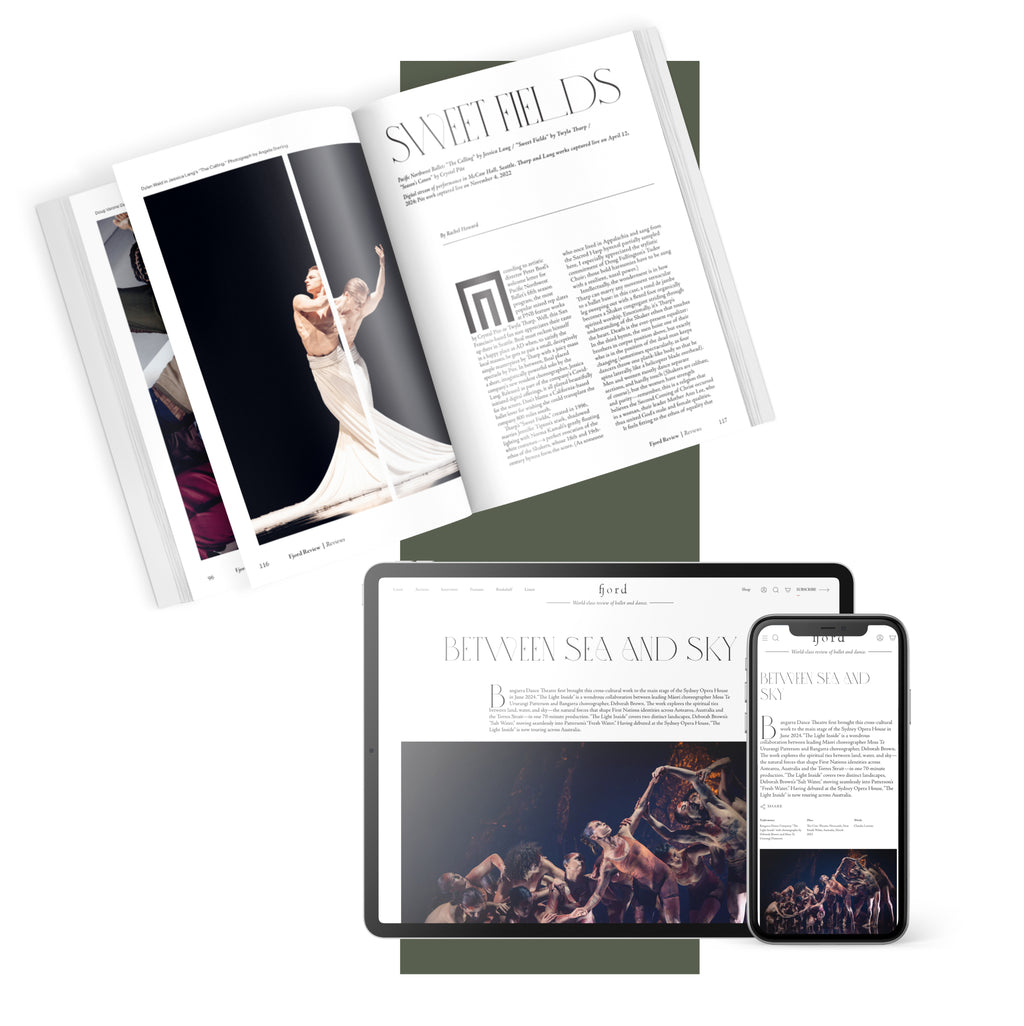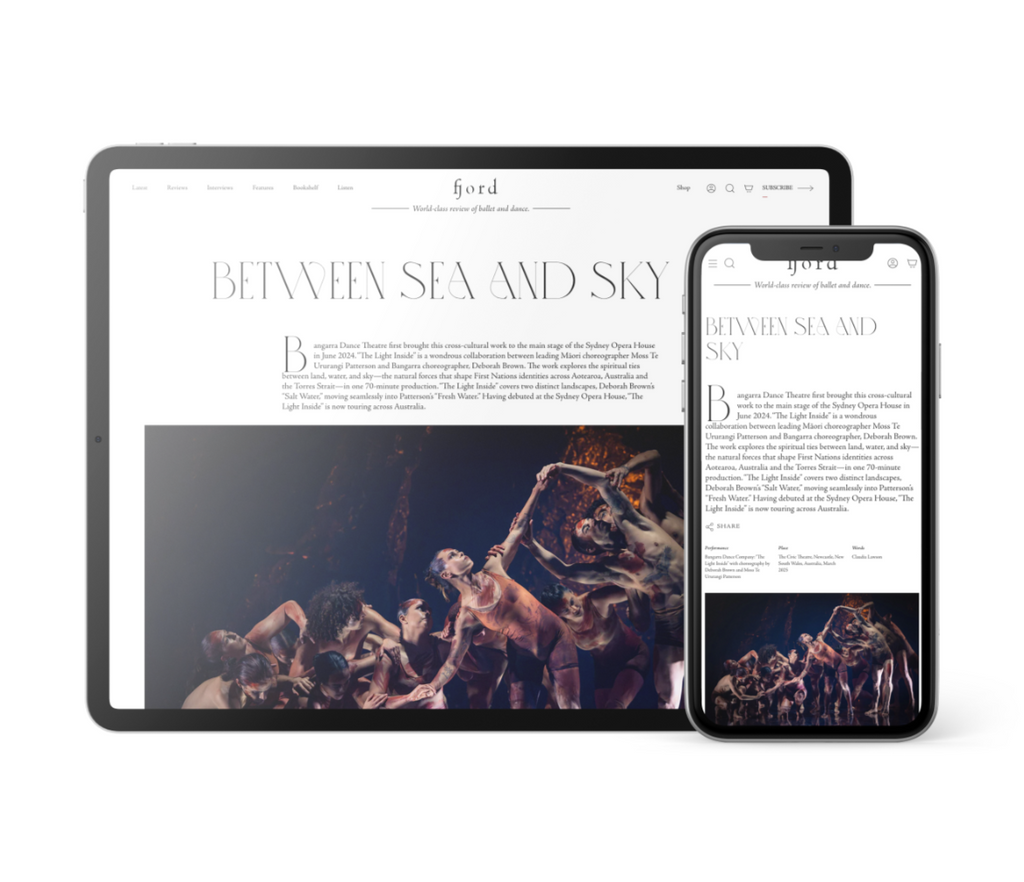As the dance continued, six of the, well, cult-like members, appeared with corn husk-style headdresses, Barr walking through the two groups of three and owning more of her destiny, readying herself for what’s to come. Still, as Barr is, in a sense exalted, she becomes increasingly ready to take on the ten gals of the clan/mob, who, at one point lie on the floor, their legs waving back and forth in concert, à la synchronized swimming—or horizontal Rockettes!
One wondered if Jones had run out of ideas, relying instead on strobe lights. Indeed, the constant illumination shifts proved somewhat of a distraction. Nevertheless, as Stravinsky’s thrashing, throbbing music builds to Barr’s ultimate demise, she is glimpsed, for a moment, standing tall and bathed in red, bringing the work to a close, whiffs of red powder visible at this raucous, not totally cohesive terpsichorean display.
With barefoot mode abandoned for stilettos, the women of “Burlesque,” performed a dancerly, updated take on the Mad Men era. Featuring variations on sexy moves made famous by teasers such as Sally Rand, Gypsy Rose Lee and Tempest Storm, Jones’ post-modern approach to the art form featured a score by Charles Wuorinen (he died in 2020), and was commissioned by ACB. Accompanied by the aforementioned pianists, this number was divided into seven “Variations,” and spotlighted (literally) soloists who, by turns, sashayed, pranced and slinked about the stage.
One scene featured a gal on a leash (Kirstin Steckmann), crawling, as it were, in S & M mode, attended by Bednarek. Corsets and fishnets ruled, as well as self-caressing and slitherings also defining the performers in these lusty vignettes, with Vanessa Meikle being undressed by Bednarek and Smith in another tableau.












comments